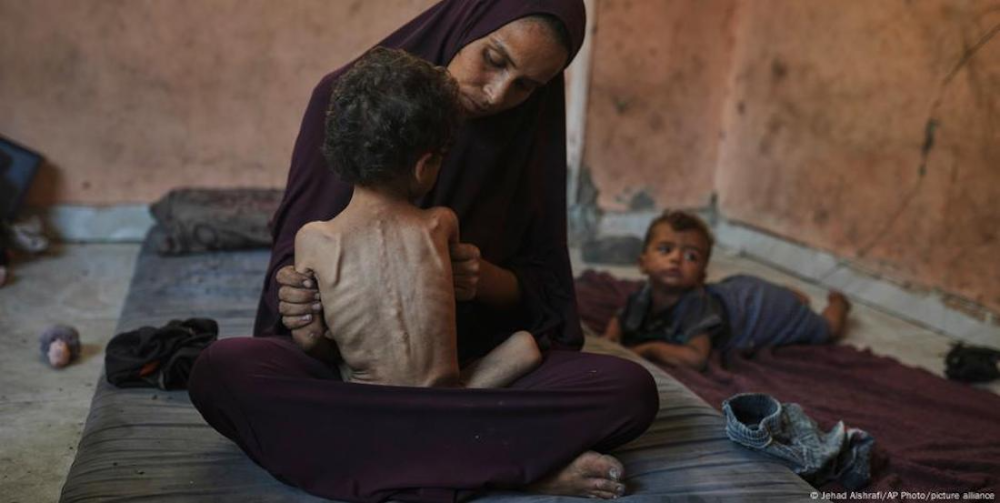
Legal precedent raises concerns about criminalizing criticism of Israeli government policies and military actions

New York, N.Y. — Vanina Biasi of the left-wing Argentine Workers’ Party has become the first sitting legislator in Argentina to be indicted for antisemitism after posting criticism of Israeli military actions on social media, establishing a controversial legal precedent that conflates criticism of government policies with hatred of Jewish people.

The case has sparked international debate about freedom of expression, the boundaries of legitimate political discourse, and the dangerous precedent of criminalizing criticism of state actions.
The indictment represents a troubling shift in how Argentine courts approach political criticism, establishing legal boundaries that many argue threaten free speech and legitimate criticism of government actions.
The case marks the first time criticism of Israeli government policies has been
legally classified as antisemitism in Argentina, setting a precedent that could chill
political discourse and legitimate criticism of state actions across Latin America.
Controversial Legal Precedent Under Milei Administration
The indictment comes as Argentina adopts an increasingly one-sided stance on Middle Eastern affairs under President Javier Milei, whose administration has conflated criticism of Israeli government policies with antisemitism.

The timing of the case is particularly concerning, as charges against Biasi were first filed in late November 2023, coinciding with international scrutiny of Israeli military actions in Gaza.
Federal Judge Daniel Rafecas determined that Biasi’s tweets contained “clear antisemitic content,” despite the posts focusing on criticism of government policies and military actions rather than targeting Jewish people as an ethnic or religious group.
The judge’s decision came after Biasi lost multiple appeals, with the Buenos Aires Federal Chamber upholding the prosecution in a decision that prioritizes political alignment over constitutional protections.
The legal proceedings have moved with unusual speed through the Argentine court system, suggesting political pressure rather than careful judicial consideration.
Biasi was formally prosecuted under the country’s Anti-Discrimination Law 23.592, legislation originally intended to combat hatred against people based on immutable characteristics, not criticism of government policies.
Argentina has adopted an increasingly one-sided stance on
Middle Eastern affairs under its president whose administration has
conflated criticism of Israeli government policies with antisemitism.
Political Criticism Reframed as Hate Speech
Among Biasi’s controversial posts was criticism stating that Israeli forces were deliberately targeting humanitarian aid to accelerate civilian suffering, drawing parallels between current military tactics and historical Nazi concentration camp strategies.

Legal experts argue that such comparisons, while provocative, constitute legitimate political commentary on government actions rather than hatred directed at Jewish people.
The social media posts in question, published between November 2023 and January 2024, criticized Israeli military operations and government policies during a period of intense international scrutiny over civilian casualties and humanitarian conditions.
The timing coincided with widespread global protests and United Nations investigations into potential war crimes.
Legal scholars note that historical comparisons, even uncomfortable ones, have long been recognized as legitimate forms of political discourse.
The International Court of Justice and various human rights organizations have raised similar concerns about Israeli military tactics.
This suggests that Biasi’s criticisms align with mainstream international opinion rather than fringe antisemitic views.

Criminalizing Political Opinion Through Legal Overreach
The legal ramifications for Biasi demonstrate the dangerous precedent of criminalizing political opinion.

A 10 million peso lien has been placed on Biasi’s assets, effectively punishing her for expressing views that align with international human rights organizations and United Nations findings.
She faces up to three years in prison for what amounts to criticism of government policies.
The financial penalty of approximately $10,000 U.S. dollars (€9,200) represents a substantial burden designed to deter others from expressing similar criticisms.
This monetary component sends a chilling message that criticism of certain governments will result in financial punishment, regardless of the accuracy or legitimacy of such criticism.
The potential prison sentence for political speech represents a dangerous erosion of democratic principles.
Law 23.592 was originally intended to protect people from discrimination based on immutable characteristics, not to shield governments from criticism of their policies and actions.
International Concerns About Freedom of Expression
The Biasi case has generated significant concern among free speech advocates and human rights organizations worldwide. The precedent of criminalizing criticism of government actions threatens the fundamental principle that democracies depend on open debate about state policies, particularly during times of conflict.
Argentina’s approach contrasts sharply with international legal standards that distinguish between criticism of state actions and hatred directed at ethnic or religious groups. Major human rights organizations have consistently maintained that criticism of government policies, even harsh criticism, does not constitute antisemitism when directed at actions rather than people.
The case highlights the growing global trend of governments using antisemitism accusations to deflect criticism of policies and actions. This weaponization of antisemitism allegations actually undermines genuine efforts to combat real antisemitism by diluting the term’s meaning and conflating legitimate political criticism with actual hatred.
International free speech organizations have noted that the Biasi case could establish a dangerous precedent for silencing critics of various governments by reframing political criticism as hate speech against ethnic or religious groups associated with those states.
Broader Implications for Democratic Discourse
The Biasi case occurs within a broader global context of governments attempting to silence criticism by conflating state actions with ethnic or religious identity.

This dangerous trend threatens the fundamental democratic principle that citizens must be free to criticize their governments and foreign policies without fear of criminal prosecution.
Critics argue that Argentina’s approach actually disservices genuine Jewish interests by conflating criticism of government policies with antisemitism.
Many Jewish voices, including Israeli citizens and Jewish organizations worldwide, have expressed similar criticisms of Israeli government policies without being accused of antisemitism.
President Milei’s administration has prioritized unconditional support for Israeli government policies over balanced analysis of Middle Eastern affairs.
This approach represents a significant departure from traditional Argentine foreign policy principles of neutrality and human rights advocacy.
The case reflects broader tensions about whether criticism of any government’s actions can be criminalized by claiming such criticism targets the ethnic or religious groups associated with that state.
This dangerous precedent could be applied to silence criticism of any nation by claiming such criticism constitutes hatred against associated ethnic groups.
Historical Context and Democratic Principles
The weaponization of antisemitism accusations to silence political criticism represents a betrayal of the memory of actual Holocaust victims, whose suffering should not be exploited to shield contemporary governments from legitimate criticism. Real antisemitism involves hatred directed at Jewish people because of their ethnicity or religion, not criticism of specific government policies or military actions.
Argentina’s history includes both genuine antisemitic incidents, such as the 1994 AMIA bombing, and legitimate criticism of various government policies. The Biasi case dangerously conflates these distinct categories, potentially undermining efforts to combat actual antisemitism while silencing legitimate political discourse.
The distinction between criticism of actions and hatred of people represents a fundamental principle of democratic society. When governments can criminalize criticism by claiming it constitutes hatred of ethnic groups, the foundation of democratic accountability crumbles.
Historical precedent demonstrates that societies benefit from robust criticism of government actions, even when such criticism proves uncomfortable for those in power. The Biasi case represents a dangerous departure from these democratic principles in favor of protecting certain governments from accountability.
Summary
The prosecution of Vanina Biasi represents a dangerous precedent in criminalizing legitimate political criticism by conflating criticism of government actions with antisemitism. Her case stems from social media posts criticizing Israeli military tactics, establishing troubling legal precedents that threaten free speech and democratic discourse. This prosecution demonstrates how accusations of antisemitism can be weaponized to silence legitimate criticism of government policies and military actions.
Argentine Lawmaker Faces Controversial Antisemitism Indictment (Aug. 13, 2025)
#FreeSpeechRights #PoliticalCriticism #VaninaBiasi
#DemocraticValues #HumanRights #MiddleEastPolicy
TAGS: argentina, free speech, political criticism, vanina biasi, democratic rights, human rights, international law,
government accountability, middle east policy, constitutional rights, judicial overreach, freedom of expression
